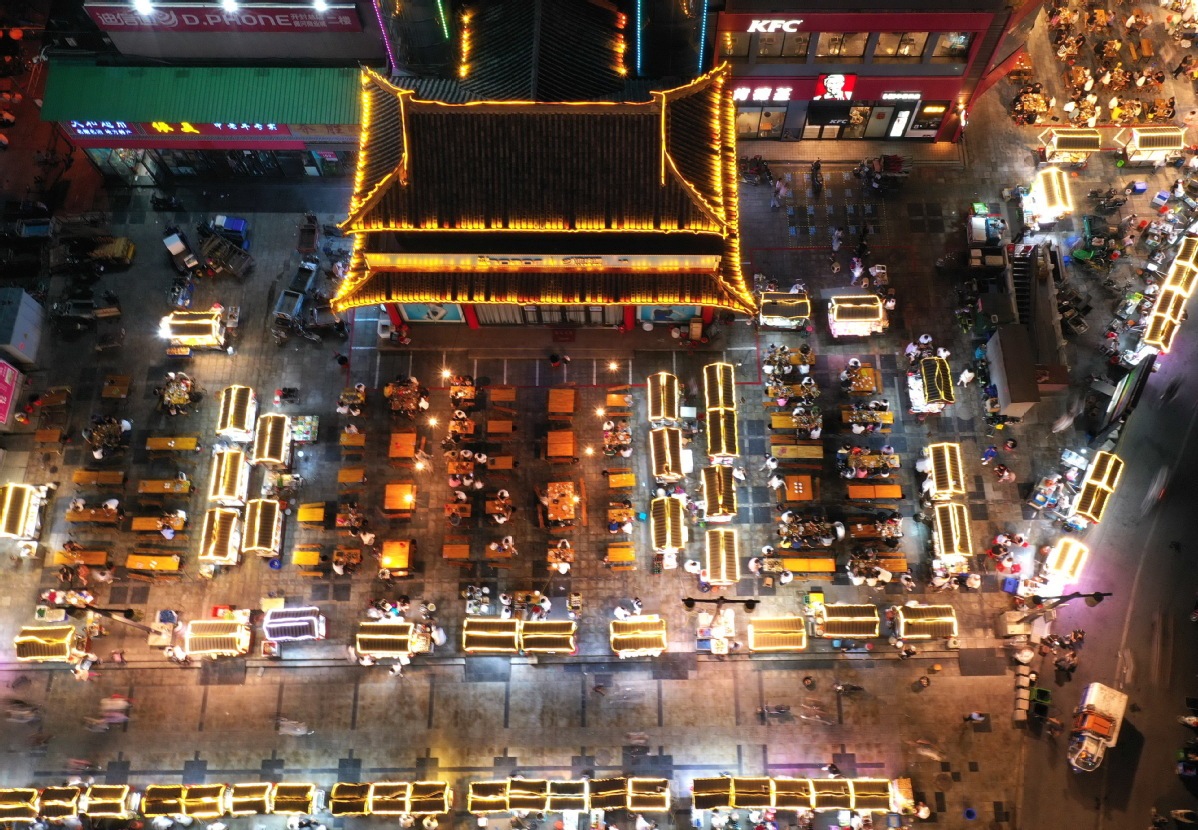
People visit Gulou market in Kaifeng, Central China's Henan province, on June 1, 2020. (Photo: Xinhua)
During a recent visit to Yantai in Shandong province, Premier Li Keqiang said that the "street economy" and the "small-store economy" are important job creators, stressing that the country's development story can get better only after the market, enterprises and individual businesses survive hardships.
China is facing a grim situation ensuring employment and people's well-being following the novel coronavirus outbreak. Expanding domestic demand to boost consumption remains an effective way to reduce the pressure. One way to do so would be to allow vendors and peddlers to do business on the roadside, as it would create lots of jobs and provide cheap goods and services to low-income people.
Allowing "roadside business" is actually a much-needed move to ensure people's livelihood and employment. Such small-scale businesses can employ many unemployed people, giving them a channel to actively exercise self-help during economic difficulties.
The "street economy" is not something novel for the Chinese people. When a large number of factories laid off people during the State-owned enterprises reform and during the Asian financial crisis in the late 1990s, the authorities had gone to great lengths to activate the "night and street business" to help those who were facing economic difficulties.
However, such road-side businesses have faced various controversies. Although road-side businesses provide employment and livelihood for low-income residents and farmers moving to cities, and give citizens the option to buy low-priced goods and services, they often lead to roads getting occupied, traffic congestion, poor sanitation, noise pollution and other problems. Authorities in many cities have sometimes driven away roadside businesses to make the cities more orderly and clean.
If not managed well, such businesses do bring with it problems, but that only reflects on the city's governance ability.
Street vendors, bazaars, night markets, flea markets, yard sales and other forms of individual retail exist even in the United States and in European countries. Street stalls are also allowed to sell snacks, clothing and other daily necessities in Japan and the Republic of Korea. However, strict restrictions exist on the time, place and scope of such forms of business there.
In China, the challenge lies in improving urban governance capacity to accommodate such businesses. The authorities should standardize the operation of roadside businesses and bring in necessary regulation and management of their products and services.
To allow a diversified business ecosystem and promote healthy development of various kinds of businesses, the authorities need to improve their urban governance capacity and market regulation ability, and strike a balance between how to keep order and maintain business vitality in the cities.


